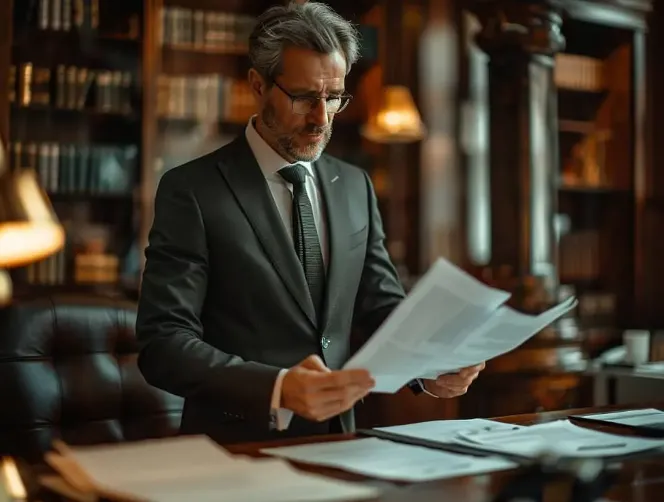When it comes to solving complex legal cases, the collaboration between private investigators and criminal lawyers is essential. Both professionals play unique yet complementary roles in the justice system, working together to uncover the truth and build strong cases. This article explores the commonalities between private investigators and criminal lawyers, how they cooperate, and the impact of their combined efforts on legal proceedings.
Contents
- 1 The Roles and Responsibilities of Private Investigators
- 2 Skills and Techniques of Private Investigators
- 3 The Roles and Responsibilities of Criminal Lawyers
- 4 Skills and Techniques of Criminal Lawyers
- 5 Common Grounds: The Intersection of Private Investigators and Criminal Lawyers
- 6 Evidence Collection
- 7 Fact-Checking and Verification
- 8 Strategic Planning
- 9 How Private Investigators and Criminal Lawyers Cooperate
- 10 Case Preparation
- 11 Evidence Presentation
- 12 Famous Private Investigators in Pop Culture
- 13 The Impact of Their Collaboration
The Roles and Responsibilities of Private Investigators
Private investigators (PIs) are professionals hired to gather information and conduct investigations. They operate in various fields, including surveillance, background checks, and finding missing persons. According to Bailco Bail Bonds, their primary goal is to uncover facts and evidence that might be hidden from the public eye.
Skills and Techniques of Private Investigators
- Surveillance: PIs are experts in monitoring individuals without being detected. This skill is crucial for gathering evidence in cases involving infidelity, insurance fraud, and other covert activities.
- Research and Analysis: Private investigators excel at digging through public records, databases, and other sources to find pertinent information.
- Interviewing: They often conduct interviews with witnesses and associates to gather testimonies that can be used in court.
The Roles and Responsibilities of Criminal Lawyers
Criminal lawyers, on the other hand, are legal professionals who specialize in defending or prosecuting individuals accused of crimes. The monder law website states that their primary responsibilities include representing clients in court, negotiating plea deals, and ensuring that their clients’ rights are protected throughout the legal process.
Skills and Techniques of Criminal Lawyers
- Legal Knowledge: Criminal lawyers possess extensive knowledge of criminal law and legal procedures, allowing them to navigate complex cases effectively.
- Negotiation: These lawyers often negotiate plea bargains to achieve the best possible outcome for their clients.
- Litigation: Criminal lawyers are skilled in presenting evidence, cross-examining witnesses, and making persuasive arguments in court.
Common Grounds: The Intersection of Private Investigators and Criminal Lawyers
Despite their different primary roles, private investigators and criminal lawyers share several commonalities that make their collaboration essential in legal cases.
Evidence Collection
Both private investigators and criminal lawyers understand the importance of solid evidence in building a case. PIs gather information through surveillance, research, and interviews, while criminal lawyers use this evidence to construct compelling legal arguments.
Fact-Checking and Verification
Private investigators and criminal lawyers often work together to verify facts and ensure the accuracy of information. PIs can uncover hidden details and corroborate witness statements, while lawyers analyze this data to strengthen their cases.
Strategic Planning
The collaboration between private investigators and criminal lawyers involves strategic planning. PIs gather evidence and provide insights, while lawyers develop legal strategies based on this information. This teamwork enhances the overall effectiveness of the case.
How Private Investigators and Criminal Lawyers Cooperate
The cooperation between private investigators and criminal lawyers is a well-coordinated effort, with each professional bringing their expertise to the table.
Case Preparation
- Initial Consultation: Criminal lawyers often consult with private investigators at the beginning of a case to outline the objectives and gather preliminary information.
- Ongoing Communication: Throughout the investigation, PIs and lawyers maintain regular communication to share updates, discuss findings, and adjust strategies as needed.
Evidence Presentation
- Documentation: Private investigators provide detailed reports, photographs, videos, and other documentation that criminal lawyers can use as evidence in court.
- Testimony: PIs may be called to testify in court, presenting their findings and answering questions about their investigative methods.
Famous Private Investigators in Pop Culture
Did you know that some of the most iconic characters in literature and film are private investigators? Sherlock Holmes, created by Sir Arthur Conan Doyle, and Sam Spade, from Dashiell Hammett’s “The Maltese Falcon,” are classic examples of private detectives who use their skills to solve intricate mysteries.
The Impact of Their Collaboration
The combined efforts of private investigators and criminal lawyers can significantly impact the outcome of legal cases. By working together, they can uncover crucial evidence, verify facts, and build strong, well-supported cases that stand up in court.
The collaboration between private investigators and criminal lawyers is a cornerstone of the justice system. Their complementary skills and shared dedication to uncovering the truth ensure that legal cases are thoroughly investigated and effectively presented. Whether it’s gathering evidence, verifying facts, or strategizing for court, the partnership between these professionals is vital for achieving justice.
In the ever-evolving landscape of law and investigation, the synergy between private investigators and criminal lawyers continues to play a pivotal role in upholding the integrity of the legal process and ensuring fair outcomes for all parties involved.


